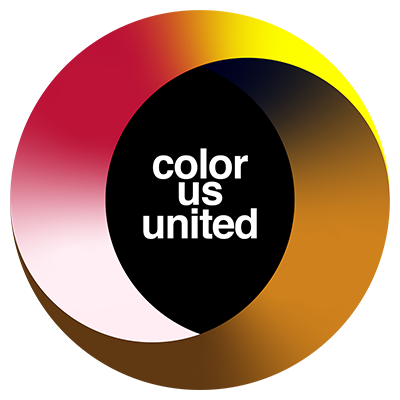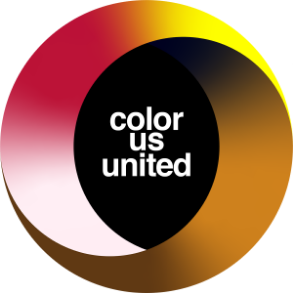America is a Community of Individuals, not Races
June 2, 2021
Our media leaders and politicians have advanced a narrative where Americans are encouraged to see themselves through the lens of race. Or more specifically, that to be White is to be privileged (and therefore evil), and to be “of color” is to be oppressed (and therefore good). Even our Vice President Kamala Harris is asked whether she is ‘Black enough,’ an absurd proposition, and yet absurdly common in our cultural mainstream.
Fortunately, this is counter to the way Americans actually see themselves. A Pew Research Survey weighted by racial representation reveals only 33 percent viewed race as significantly important in their lives. According to the 2018 Brigham Young University American Family Survey, only 29 percent of those surveyed viewed their race as ‘extremely’ or ‘very’ important.
| Percentage of respondents who viewed _____ as ‘extremely’ or ‘very’ important:
– Political Affiliation, 28 percent – Race, 29 percent – Career, 37 percent – Religion, 43 percent – Being a spouse, 70 percent* – Being a parent, 71 percent* *of those respondents who are spouses and parents, respectively. From The American Family Survey, 2018. |
Here are people’s responses to a questionnaire on personal identity I, as President of the group Color Us United, made to people across the country: who are you? List five things.
“A Christian, a wife, a mother, a friend, a writer” – Jessie Stimpson, 41, from Wisconsin.
“Skeptic, Jew, liberal, empiricist, math student” – Asher Ellis, 19, Connecticut.
“Garment manufacturer, small business owner, athlete, Los Angeles native, Korean American” – Michael Park, 31, California.
“Empathetic, Kind, Introvert, Thinker, Conservative – César Vela, 18, Texas.
“Child of God, daughter, Ben and Jerry’s Ice Cream worker, Woodworker, forgiven.” – Karen Toney, 52, North Carolina.
“Medical school student, Queer” – Sarah Borucki, 23, Virginia.
There are many more answers. We as Americans choose to shape our lives in many respects. Families, careers, schools, political affiliations, houses of worship and even activities such bowling leagues come to define lives to a greater extent than race.
It is true that among racial groups, Black Americans are the most likely to view their race as ‘extremely’ or ‘very’ important to them, at 74 percent. But even among Black Americans, race is just one personal indicator.
“Black, Male, Chicagoan, from a low-income family, perpetually lucky,” says Corey Walker, 25, a University of Michigan Business school students and elite Deerfield Academy high school graduate.
“Black, Artist, Skateboarder, Family Man, Passionate,” says Jordan Watkins, 22, from Ewing, New Jersey says to the same question: who are you? List five things.
Corey and Jordan are both young Black men. But their lives are so different because they live in different communities with different cultures and different norms. Corey does not bear any relationship to the Central New Jersey-area skateboarding scene that Jordan frequents. And Jordan does not know of the elite business school scene that Corey partakes. They live radically different lives, pushed along by different currents.
They both believe they face racial discrimination in America. “My parents would tell me about it all the time, that you have to work twice as hard to get ahead,” Corey says. Corey acknowledges, too, the privileges he has gained because he was Black – getting into Deerfield in part because “they wanted their white kids to have a black friend.” Corey’s views reveal a complex truth about how Black Americans view their racial identity: A Pew research survey says 17 percent of Black Americans view their race as having helped their ability to get ahead, while 29 percent are indifferent. 52 percent, barely a majority, say their race hurt their ability to get ahead.
And for Jordan, it is his experience of a different kind of discrimination in his community that concerns and surprises him.
“I’m more surprised that [my community] discriminates against me because I’m a Christian than because I’m Black,” Jordan says. In his part of New Jersey, Christianity has negative associations that chill his public expression of his faith. It has led Jordan to hesitate openly proclaiming his religious identity. And it shows that when we make the locus of conversation about race all the time, we gloss over problems that happen within racial communities.
But a divisive narrative concocted by our media and government pretends that race dictates one’s community and that we should see each other and our leaders primarily based on the colors of their skin. Elite colleges ask for your race, so they can judge you on it. Big corporations demand racial quotas in hiring, without doing enough to create a pipeline for truly diverse achievement.
Our mainstream media paints people as cartoon caricatures of racial dramas, and it places a heavy burden on high achieving minorities to “represent” their race in elite society. Media stories about the underprivileged increasingly have racial tones, and ironically privilege certain racial victimhood narratives over others. Race has become a convenient way to sell a story, without digging deeper into the details.
It is time we as Americans said enough. America is a community of individuals, not races. We are a rough-hewn people and we will not submit to the endless categorization of us based on skin color we cannot control.
With many others, I am starting the Color Us United Campaign, which will speak to the media fighting back on the divisive racial ideology taking over our discourse. We will represent the many millions of Americans who wish to live in a country where we can respect each other’s freedoms as individuals, where we can live at peace with those of different skin colors, and where the barriers of race and background erected by our leaders may be torn down so we can trust each other and work together to solve the underlying problems latent in our particular communities. Because in the end, we are a United States – and we should act like it.







